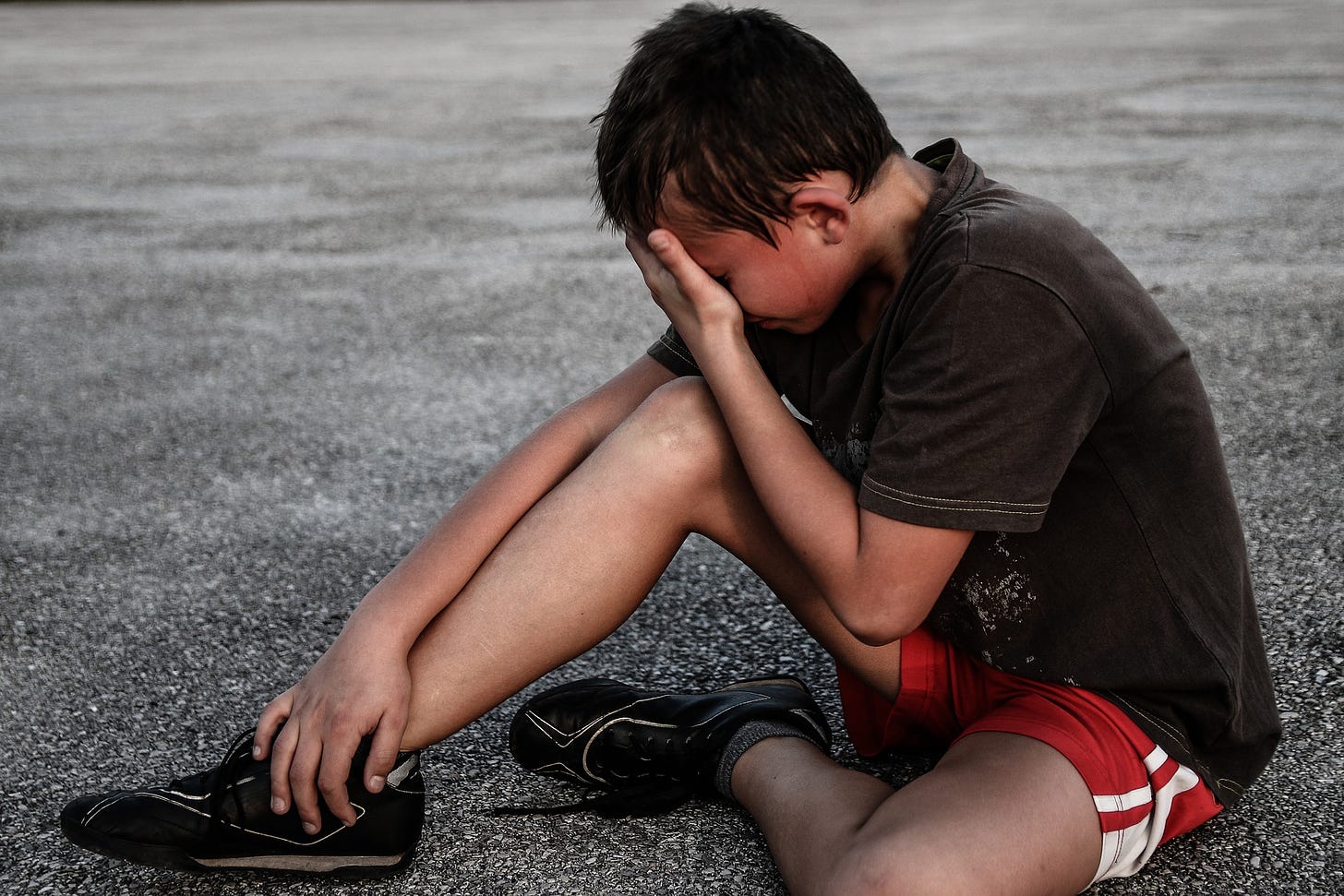Covert Child Abuse: When a Child Becomes the Pawn of an Abusive Parent
To abuse a child's parent is to abuse the child.
This article is a condensed and adapted version of information I included in chapter three of my book, Don’t Plant Your Seeds Among Thorns: A Catholic’s Guide to Recognizing and Healing from Domestic Abuse, published by En Route Books and Media. Available on Amazon or through my website.
Special Offer!
For 15% off the cover price a signed copy of my book, Don’t Plant Your Seeds Among Thorns: A Catholic’s Guide to Recognizing and Healing from Domestic Abuse, use coupon code CREATE15.
After reading “Under My Thumb: Coercive Control and the Sensitive Victim,” a subscriber sent me an email to tell me that her ex-husband used to blare that same song as often as he could, laughing in a tauntingly cruel way. He’d encourage his children to sing along as if he was playing a carefree, fun game with them. They often did exactly what their dad wanted, not realizing how much they were wounding their mother—after all, they didn’t know he was purposely tormenting her, and they simply wanted his approval.
They didn’t know he was purposely tormenting her even if they did feel, deep down, that there was something cruel buried inside their father’s “jokes.”
But how can this be child abuse?
To disturb the emotional safety of a child is an inherently evil act. Children are vulnerable and reliant on their caregivers to provide their fundamental needs—not just food and shelter, but psychological stability and unreserved love. When one parent encourages his children to engage in abusing the other parent by going along with his “teasing” and “jokes,” this sends a confusing message to the developing minds of his children.
First, their father made it clear that they’d only get approval from him if they went along with his “teasing,” which sent the bewildering message that if they didn’t antagonize their mother, they wouldn’t get his admiration or love. They were also being taught that a woman’s place was “under the thumb” of her superior husband.
That’s not mutual self-giving in a marriage—it’s power-over.
To abuse a child’s parent is to abuse the child.
Even if not in a direct and overt manner, this is still a form of emotional and psychological maltreatment. The trickle-down effect is enormous, extending far beyond childhood and potentially tainting future adult relationships. A child forced to live their most vulnerable years in such an environment is likely to bear a lifetime of wounds, unless they seek active healing.
It’s cruel to turn a child into an unwitting participant of abuse, and it creates intense psychological turmoil within the developing brain. On the one hand, the child desperately wants to please their abusive parent (not realizing, of course, that the parent is manipulating the entire family). On the other hand, the child intuitively knows something is amiss.
A child who has never heard of “cognitive dissonance—and wouldn’t understand the phrase even if it was said to them—can still understand the effects of such extreme psychological and emotional trauma.
Additionally this brainwashing—one parent convincing a child that their other parent is a monster, a liar, a cheater; an idiot, inexperienced, rigid, or just plain wrong (or whatever preferred labels he uses)—tends to taint the parent-child relationship well after the child becomes an adult.
Healing from manipulative brainwashing takes great effort and a conscious adjustment of thought. It requires an honest assessment and an uncritical look at the past. For the adult child of an emotionally abusive parent, coming to terms with that parent’s manipulative personality and realizing that one’s own perceptions, beliefs and experiences of the past have been built on a series of progressively brutal lies can be a harsh reality to take in. Yet it’s a reality that must be admitted if true healing is to be accomplished.
Facing these difficult truths can also break generational abuse. Children of abusive parents often end up marrying similar spouses, because that type of personality is familiar and even comfortable to them. They’ve been conditioned to accept abuse as “normal”—and therefore they don’t recognize a manipulative personality when they engage with one.
Other victimized children grow up to become abusive themselves. They act what they know, and perpetuate the sad cycle.
It’s time to take control.
It’s time to take control: of our lives, our selves, our memories and perceptions, and of our ability to authentically love—without borders or boundaries, without any controlling strings or conditions attached.
By facing the truth, we face healing. We end the cycle, and create a nurturing environment so the next generation can flourish.
We can end the cycle so the next generation can flourish in faith, hope, love, and peace.
Special Offer!
For 15% off the cover price a signed copy of my book, Don’t Plant Your Seeds Among Thorns: A Catholic’s Guide to Recognizing and Healing from Domestic Abuse, use coupon code CREATE15. You can also order on Amazon.





